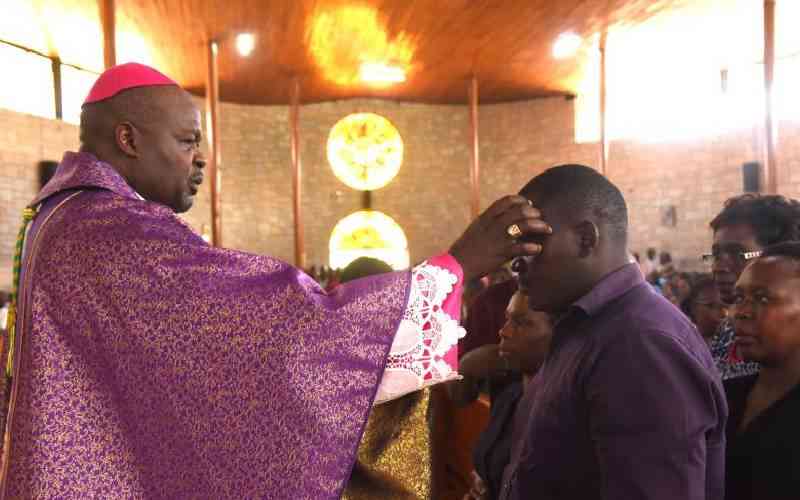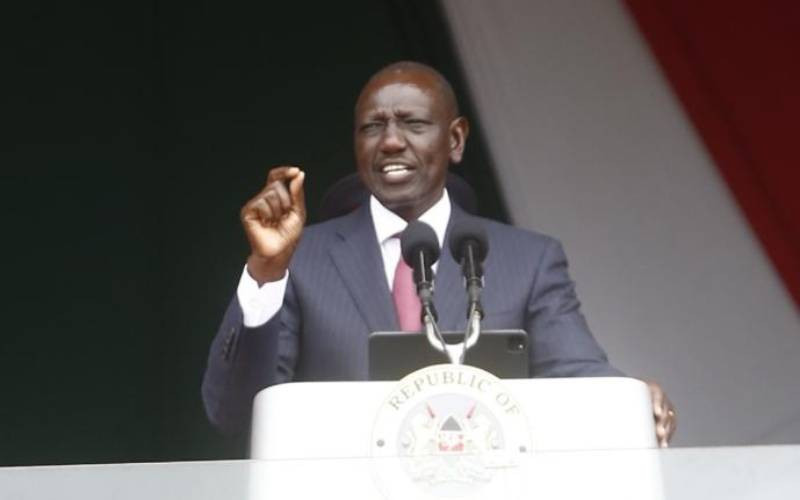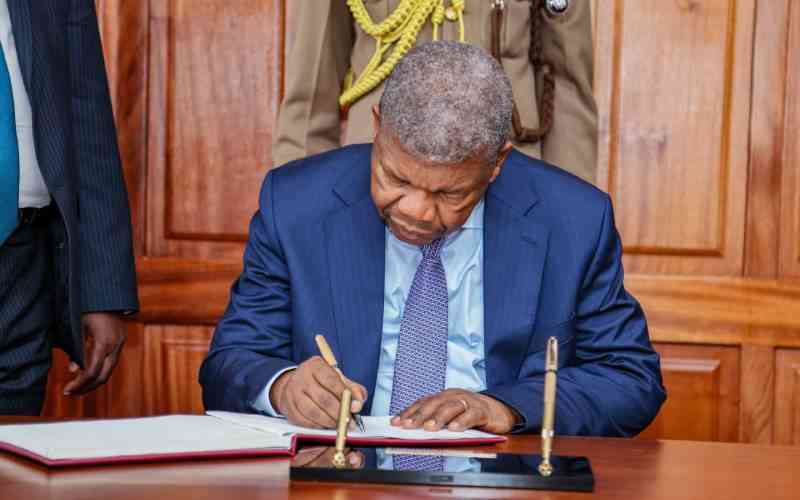“Fellow Kenyans, our nation has now successfully navigated the most complex General Election in our history. Our journey began three years ago, with the promulgation of a new Constitution, and ended eleven days ago, with a landmark Supreme Court decision. Ours has been an unusual story. An unconventional path. We have been praised and criticised in turn – depending on who was telling our story. Yet while some watched the unfolding national events with skepticism, resigned to what they believed was the inevitability of chaos, others, the vast majority, looked upon our nation with a tempered hope; cheering us on not only because they believed in us but because they knew that if Kenya succeeded they too would succeed.”
Those were the words of President Uhuru Kenyatta in his inauguration speech. They are even more relevant today as the day he read that fine speech. As we celebrated Mashujaa Day, the day set aside to rejoice in the freedom and wider democratic space that various heroes put their lives on the line for, it is imperative we remember that they were actually entrenching the rule of law for a free nation.
Mashujaa, Madaraka and Jamhuri Days are poignant reminders of every Kenyan’s responsibility to safeguard the rights and freedoms of every citizen, visitor and investor within our national borders. Sadly, however, there are a growing number of leaders and institutions that have over the years operated with impunity and sought to not just ‘bend’ the law, but even break the very laws meant to prevent a state of anarchy setting in.
During the 50 years of our statehood, the political assassinations of JM Kariuki, Robert Ouko, Tom Mboya, Pio Gama Pinto, Alexander Muge, among others, left a stain on institutions of justice as the murders remained unsolved.
Corruption became an endemic byword and way of life. Kenyans celebrated and voted in those who had lined their pockets with ill-gotten riches. Youths from various communities were incited to take up arms against their neighbours. Sadly, no action has been taken against perpetrators of the 1992, 1997 and 2007-2008 tribal clashes.
Even as we promulgated a new Constitution in 2010 to re-define how we should live and improve our livelihoods, we appear to be coming full circle as more people disrespect or totally ignore court orders. The leaders we have mandated to uphold the letter and spirit of our Constitution and the rule of law are openly challenging this onus.
President Kenyatta led from the front by heeding an application made before the International Criminal Court to appear in person at The Hague. In all his speeches, he has pledged his adherence to the rule of law and stressed the need for all citizens to follow suit.
When we are good, we are very good, such that even sea pirates and terror suspects get their day in court before they are dispatched to jail or repatriated to their countries of origin. But when people openly defy various court orders, what sort of society are we trying to build? Even an exasperated Chief Justice is on record recently urging all litigants to heed court orders or risk embracing the slippery pole of anarchy. We are becoming a defiant nation that has no interest in helping the country and its citizens grow.
Until the Ndung’u, Akiwumi, Kiliku and Waki reports are made public and those responsible for the wanton looting and genocide brought to justice, celebrating national days will only be Pyrrhic victory of country merely going through the motions.
These reports are a reflection of us as a society and present various proposals on how we can handle our past and present challenges. We must, therefore, agree that we opened the lid by allowing these probes and must, therefore, deal with the worms in these cans. Every Kenyan, regardless of their status, ethnic, religious or political affiliation, must commit to respect the law and allow it to take its course. However, Kenya will remain stagnant and under threat of anarchy if we cannot submit to the simple habit of following the rule of law.
 The Standard Group Plc is a
multi-media organization with investments in media platforms spanning newspaper
print operations, television, radio broadcasting, digital and online services. The
Standard Group is recognized as a leading multi-media house in Kenya with a key
influence in matters of national and international interest.
The Standard Group Plc is a
multi-media organization with investments in media platforms spanning newspaper
print operations, television, radio broadcasting, digital and online services. The
Standard Group is recognized as a leading multi-media house in Kenya with a key
influence in matters of national and international interest.
 The Standard Group Plc is a
multi-media organization with investments in media platforms spanning newspaper
print operations, television, radio broadcasting, digital and online services. The
Standard Group is recognized as a leading multi-media house in Kenya with a key
influence in matters of national and international interest.
The Standard Group Plc is a
multi-media organization with investments in media platforms spanning newspaper
print operations, television, radio broadcasting, digital and online services. The
Standard Group is recognized as a leading multi-media house in Kenya with a key
influence in matters of national and international interest.








